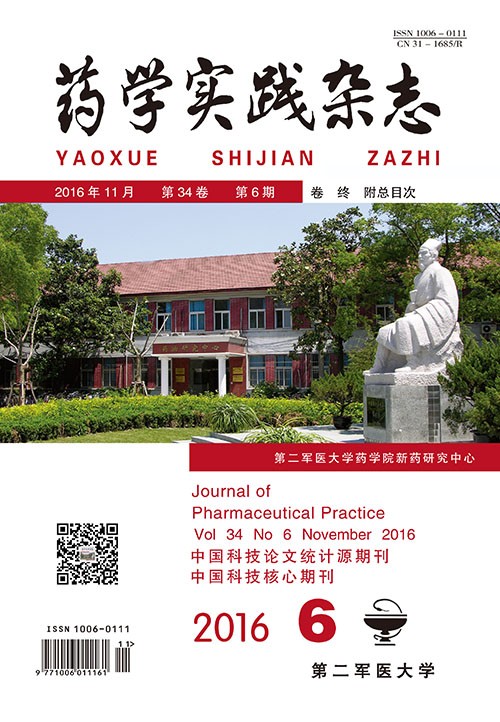|
[1]
|
Mcdonald NQ, Hendrickson WA. A structural superfamily of growth factors containing a cystine knot motif[J]. Cell, 1993, 73(3):421-424. |
|
[2]
|
Isaacs NW. Cystine knots[J]. Curr Opin Struct Biol, 1995, 5(3):391-395. |
|
[3]
|
Park S, Stromstedt AA, Goransson U. Cyclotide structure-activity relationships:qualitative and quantitative approaches linking cytotoxic and anthelmintic activity to the clustering of physicochemical forces[J]. PLoS One, 2014, 9(3):e91430. |
|
[4]
|
Reinwarth M, Nasu D, Kolmar H, et al. Chemical synthesis, backbone cyclization and oxidative folding of cystine-knot peptides:promising scaffolds for applications in drug design[J]. Molecules, 2012, 17(11):12533-12552. |
|
[5]
|
Sato K, Yamaguchi Y, Ishida Y, et al. Roles of basic amino acid residues in the activity of μ-conotoxin GⅢA and GⅢB, peptide blockers of muscle sodium channels[J]. Chem Biol Drug Des, 2015, 85(4):488-493. |
|
[6]
|
Green BR, Bulaj G, Norton RS. Structure and function of μ-conotoxins, peptide-based sodium channel blockers with analgesic activity[J]. Future Med Chem, 2014, 6(15):1677-1698. |
|
[7]
|
Pallaghy PK, Norton RS,Nielsen KJ, et al. A common structural motif incorporating a cystine knot and a triple-stranded β-sheet in toxic and inhibitory polypeptides[J]. Protein Sci, 1994, 3(10):1833-1839. |
|
[8]
|
Norton RS, Pallaghy PK. The cystine knot structure of ion channel toxins and related polypeptides[J]. Toxicon, 1998, 36(11):1573-1583. |
|
[9]
|
Craik DJ, Daly NL, Waine C. The cystine knot motif in toxins and implications for drug design[J]. Toxicon, 2001, 39(1):43-60. |
|
[10]
|
Schroeder CI, Nielsen KJ, Adams DA, et al. Effects of Lys2 to Ala2 substitutions on the structure and potency of ω-conotoxins MVⅡA and CVID[J]. Biopolymers, 2012, 98(4):345-356. |
|
[11]
|
Almeida AM, Li R, Gellman SH. Parallel β-sheet secondary structure is stabilized and terminated by interstrand disulfide cross-linking[J]. J Am Chem Soc, 2012, 134(1):75-78. |
|
[12]
|
Henriques ST, Huang YH, Chaousis S, et al. The Prototypic Cyclotide Kalata B1 Has a Unique Mechanism of Entering Cells[J]. Chem Biol, 2015, 22(8):1087-1097. |
|
[13]
|
Skjeldal L, Gran L, Sletten K, et al. Refined structure and metal binding site of the kalata B1 peptide[J]. Arch Biochem Biophys, 2002, 399(2):142-148. |
|
[14]
|
Ravipati AS, Henriques ST, Poth AG, et al. Lysine-rich cyclotides:a new subclass of circular knotted proteins from Violaceae[J]. ACS Chem Biol, 2015, 10(11):2491-2450. |
|
[15]
|
Slazak B, Jacobsson E, Kuta E, et al. Exogenous plant hormones and cyclotide expression in Viola uliginosa (Violaceae)[J]. Phytochemistry, 2015, 117:527-536. |
|
[16]
|
Reinwarth M, Glotzbach B, Tomaszowski M, et al. Oxidative folding of peptides with cystine-knot architectures:kinetic studies and optimization of folding conditions[J]. Chembiochem, 2013, 14(1):137-146. |
|
[17]
|
Mao B. Topological chirality of proteins[J]. Protein Sci, 1993, 2(6):1057-1059. |
|
[18]
|
Tang YQ, Yuan J, Osapay G, et al. A cyclic antimicrobial peptide produced in primate leukocytes by the ligation of two truncated alpha-defensins[J]. Science, 1999, 286(5439):498-502. |
|
[19]
|
Kliemannel M, Weininger U, Balbach J, et al. Examination of the slow unfolding of pro-nerve growth factor argues against a loop threading mechanism for nerve growth factor[J]. Biochemistry, 2006, 45(11):3517-3524. |
|
[20]
|
Daly NL, Craik DJ. Acyclic permutants of naturally occurring cyclic proteins. Characterization of cystine knot and beta-sheet formation in the macrocyclic polypeptide kalata B1[J]. J Biol Chem, 2000, 275(25):19068-19075. |
|
[21]
|
Olivera BM, Rivier J, Clark C, et al. Diversity of Conus neuropeptides[J]. Science, 1990, 249(4966):257-263. |
|
[22]
|
Banerjee J, Gyanda R, Chang YP, et al. The chemical synthesis of alpha-conotoxins and structurally modified analogs with enhanced biological stability[J]. Methods Mol Biol, 2013, 1081:13-34. |
|
[23]
|
Guo Y, Sun DM, Wang FL, et al. Diaminodiacid Bridges to Improve Folding and Tune the Bioactivity of Disulfide-Rich Peptides[J]. Angew Chem Int Ed Engl, 2015. |
|
[24]
|
Cheneval O, Schroeder CI, Durek T, et al. Fmoc-based synthesis of disulfide-rich cyclic peptides[J]. J Org Chem, 2014, 79(12):5538-5544. |
|
[25]
|
Poth AG, Colgrave ML, Philip R, et al. Discovery of cyclotides in the fabaceae plant family provides new insights into the cyclization, evolution, and distribution of circular proteins[J]. ACS Chem Biol, 2011, 6(4):345-355. |
|
[26]
|
Maciel IS, Azevedo VM, Pereira TC, et al. The spinal inhibition of N-type voltage-gated calcium channels selectively prevents scratching behavior in mice[J]. Neuroscience, 2014, 277:794-805. |
|
[27]
|
Datta A, Kundu P, Bhunia A. Designing potent antimicrobial peptides by disulphide linked dimerization and N-terminal lipidation to increase antimicrobial activity and membrane perturbation:Structural insights into lipopolysaccharide binding[J]. J Colloid Interface Sci, 2016, 461:335-345. |
|
[28]
|
Ireland DC, Wang CK, Wilson JA, et al. Cyclotides as natural anti-HIV agents[J]. Biopolymers, 2008, 90(1):51-60. |
|
[29]
|
Moore SJ, Leung CL, Norton HK, et al. Engineering agatoxin, a cystine-knot peptide from spider venom, as a molecular probe for in vivo tumor imaging[J]. PLoS One, 2013, 8(4):e60498. |







 DownLoad:
DownLoad: